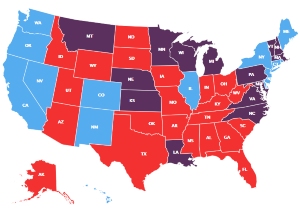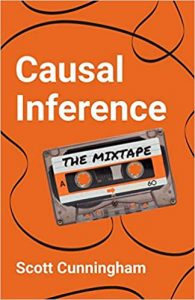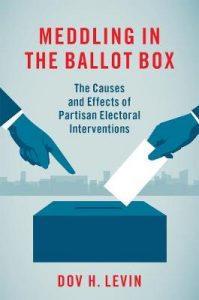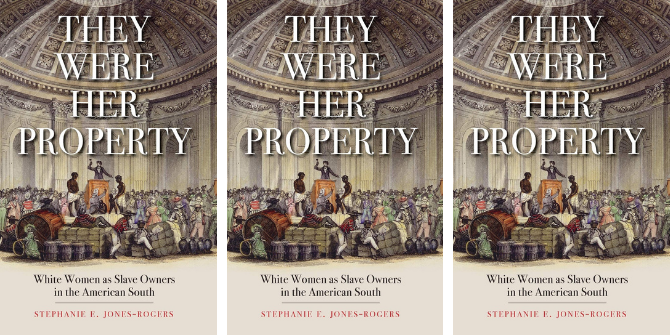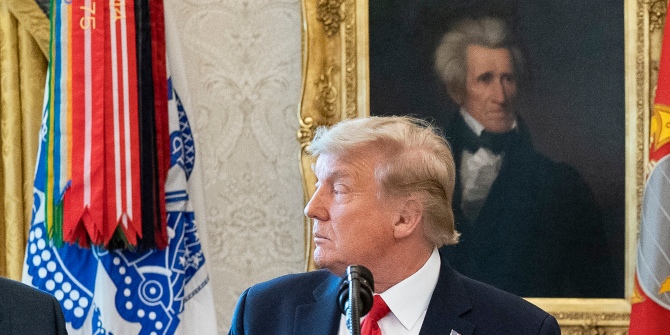USAPP Managing Editor, Chris Gilson looks at the best of the week’s political blogging from academics and think-tanks. Don’t see a blog referenced here that you think we should be reading? Let us know what we’ve missed out and we’ll try to include it next week.
Jump to
The Trump Administration and the Republican Party
On Friday, American Power looks at commentary which suggests that Rex Tillerson might be the weakest Secretary of State in US history. They say that Tillerson might be the victim of a Democrat campaign to sabotage him, so such assertions may not be correct. Outside the Beltway also has some thoughts on Trump’s team, writing this week that while Tillerson is not the worst pick that Trump has made, he is not exactly a “high quality choice”. In addition, they comment that President Trump appears to be listening less to his “quality” staff picks, and more to the ideologues like Stephen Miller and Sebastian Gorka.
Lawyers, Guns and Money talks on another member of Trump’s cabinet, the Secretary of Health and Human Services, Tom Price. They say that Price has effectively lied by stating that no-one will be financially worse odd under the GOP’s new health care plan.
Talking of Trump and the government, Take Care writes on Friday that we need to pay attention to who he is putting in charge of Federal agencies. There are currently more than 500 executive branch positions which need Senate approval; Trump has nominated fewer than 50, but is bringing in staffs that do not require Senate confirmation to work in many agencies. Outside the Beltway has read Trump’s new budget proposals – apparently it would get rid of 18 federal agencies, from the National Endowment for the Arts to the US Trade and Development Agency.
Monkey Cage wishes Trump “good luck” with reorganizing the executive branch, commenting that past presidents from Nixon to Clinton to Obama have tried and failed at executive reform.
On Monday, Five Thirty Eight writes that the White House has taken its attacks on jobs data to new and dangerous levels, after the Director of the Office of Management and Budget, Mick Mulvaney accused the previous Obama administration of manipulating such data to make it appear that the unemployment rate is actually lower than it was.
Discussion of President Trump’s newly rewritten executive order on immigration continued this week. Immigration Prof Blog writes that the order is Trump fulfilling his (misguided) campaign promises to the detriment of American values. They focus on Section 6 of the order, which would prevent large numbers of refugees from claiming asylum because of what would be very tenuous links to alleged terrorist groups. Lawfare meanwhile looks at the legality of the Executive Order, commenting that it’s unclear as to whether or not it violates the Establishment Clause of the US Constitution. On Thursday, Outside the Beltway has the news that Trump’s revised travel ban has been blocked by two Federal District Court judges mere hours before it was due to come into effect. The judges, in Maryland and Hawaii, reached similar conclusions to Judge James Robart who blocked the original order: that the order had a clear discriminatory intent.
The Democratic Party
On Sunday, Outside the Beltway says that former Maryland Governor, Martin O’Malley has missed the point in his statement that his failed 2016 presidential campaign was unable to “change lanes”. They comment that the fact that O’Malley’s thought this is an indication of why his campaign may have gone nowhere.
The House and Senate
On Tuesday, Rule 22 wonders if GOP House Speaker, Paul Ryan (WI) is doing too much leading in the Congressional debate over the bill to repeal and replace Obamacare. They comment that the ability of Congressional leaders to actually lead is overblown; trying to lead a reluctant caucus will not end well for Ryan. On Thursday, FiveThirtyEight demonstrates the struggle ahead for Ryan, reporting that there may be as many as 22 House members ready to vote against the American Health Care Act, a number which would mean that the bill will fail.
Immigration Prof blog says that Representative Steve King (R-IA) has generated a firestorm this week with a tweet criticizing foreigners and migrants, which stated: “we can’t restore our civilization with somebody else’s babies.”
Elections and American democracy
On Wednesday, Smart Politics says that if Utah Republican Representatives Jason Chaffetz were to lose his seat next year, it would be the biggest US House upset in the state’s history. This comes after Democrat Kathryn Allen filed to challenge Chaffetz following his comments that Americans have “choices” to spend on their health care or not.
The Society Pages looks at a new study on voting – voter suppression that is. They say that there’s new evidence that voter suppression (such as voter ID and felon disenfranchisement laws) – and not voter fraud as many insist – would has influenced the outcome of key elections.
Mischiefs of Faction this week takes on the idea that big data has been increasing political polarization. They say that the two aren’t necessarily linked, given that polarization has many different causes.
OUPBlog writes Sunday that it’s the media that is skewed, not political polls. New research shows that the media covers the polls that they consider to be the most newsworthy, which in turn distorts viewers’ perceptions of election races.
The Government, Beltway and the Supreme Court
This week the Congressional Budget Office (CBO) released a report which stated that the Congressional GOP’s Obamacare repeal and replacement plan – the American Health Care Act – would leave 24 million Americans without coverage, and increase premiums for many. Monkey Cage writes that despite attacks from the GOP – who called the CBO ‘corrupt’ – the organization is not going anywhere, largely because it’s a Congressional body, not an executive one.
Over at The Source, they profile new research which shows the effectiveness of the Federal Reserve’s bailout of the banks during the 2007-2009 financial crisis.
Moving on to the Courts, Election Law blog writes this week on a US District Court decision on Texas’ redistricting, which found that some of the state’s district plans were in violation of Section 2 of the Voting Rights Act, and some were passed with a racially discriminatory intent.
As Judge Neil Gorsuch’s nomination to the Supreme Court makes its way through the Senate, The Volokh Conspiracy comments that he attracts broad bipartisan support among legal elites, despite progressive activists who may be “itching for a fight” over his nomination.
Foreign policy, defense and trade
Lawfare this week talks on the US military prison in Guantanamo Bay, Cuba, looking at why it was originally opened over 15 years ago, and why it’s not time that it was closed, rather than enlarged.
On Tuesday, Duck of Minerva summarizes recent discussion and debate on Donald Trump’s foreign policy. One comment they make is that “unsettled narrative situations”, as we are now seeing with the Trump administration, gives presidents greater leeway to craft and to define new narratives.
This week saw an unexpected row between the US and UK after the Trump administration accused British spies of helping President Obama to surveil President Trump during the 2016 election campaign. Monkey Cage has an explainer of the row, writing that there’s no actual proof that the allegations are true, but that they will hurt UK-US intelligence cooperation.
On Friday, Saidemann’s Semi-Spew has a primer on NATO burden-sharing for President Trump, focusing on the fact that burden sharing is not about other countries owing the US money.
Bradford deLong writes this week on the importance of NAFTA. He argues that the US-Canada-Mexico trade agreement is really not that big a deal, only benefitting US families to the tune of about $100 a year.
Monkey Cage discusses why what they call “Trumponomics” may complicate US foreign policy, as the higher interest rates that they may cause would hurt the ability of many developing countries to borrow.
Obamacare and health policy
This week was all about the Congressional GOP’s Obamacare repeal and replacement plan, the American Health Care Act (AHCA). Lawyers, Guns & Money says that the bill (which they term ‘TrumpCare’) is a “human rights atrocity”, because it will deprive 24 million Americas of health insurance with as many as 17,000 potentially people dying when in 2018 than otherwise would have under the current system. FiveThirtyEight explores the numbers in the GOP’s health care plan, focusing on the aforementioned 24 million figure. Writing at the New York Times, Nicholas Kristof tells of House Speaker Paul Ryan’s health care bill tribulations in the form of a Bible story, calling him “Pious Paul”.
Monkey Cage says that the GOP’s health care bill has actually made the repeal of Obamacare less likely. Why? There’s a lot in the bill which Democrats would be able to use against Congressional Republicans in elections in 2018 and 2020.
Outside the Beltway, meanwhile has some observations on the debate over health care and insurance, writing that the US has never really had a free market health care system for conservatives to return to, and that proposals for health care savings accounts are a solution, but not a panacea given that people already do not fully fund similar funds such as for their retirement.
The economy, society and criminal justice
On Thursday, Reg Blog says that those who claim that redistributive policies from rich to poor are futile are relying on “alternative math”; such policies can uplift the poor because the “pie” is big enough to do so. Noahpinion meanwhile warns against “thinking like an economist”, because many of what academics say are the basic principles of the field – like that competition works – are not even true. Talking about economic measures, Angry Bear reckons that measures of underemployment are continuing to improve. While the unemployment rate is about 4.7 percent the number of people who are part time but want a full time job is falling compared to those without a job.
Monkey Cage writes that if we want to reduce the number of fatal police shootings, then police agencies should require officers to file a report whenever they point a gun at someone but don’t fire.
Featured image credit: Woody Wood (Flickr, CC-BY-NC-2.0)
Please read our comments policy before commenting.
Note: This article gives the views of the author, and not the position of USAPP– American Politics and Policy, nor of the London School of Economics.
Shortened URL for this post: http://bit.ly/2o9s08r


